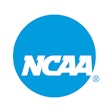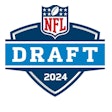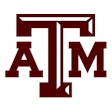An NCAA survey has found that student-athletes spend more time on sports preparation than on academic study, the latest evidence that being a college jock is a full-time job.
Conducted last year and released at last week's NCAA Convention in San Antonio, Texas, the survey found that football players at the FBS level say their sport consumes an average 43.3 hours of their time per week (including time spent playing games, practicing, training and in the training room), compared to 38 hours on academics.
And football players aren't alone. The breakdown for Division I baseball players was even more lopsided - 42 hours devoted to baseball, 32 to academics. Basketball came closest to something resembling balance, with men's players reporting 39 hours per week devoted to the sport, and 37 to academics, while women reported a breakdown of 37½ and 39.
These numbers appear to make a mockery of the NCAA's 20-hour rule, adopted in 1991 to limit demands on athletes' time so they can be students, too. The University of Michigan made headlines recently when football players were quoted anonymously regarding their time commitments, leading to minor sanctions by the NCAA.
The association conducted a similar survey in 2006, with similar results for football players (who at that time were spending roughly 10 hours per week more on their sport than athletes in other sports), and a survey conducted more recently by the American Football Coaches Association found that nearly nine in 10 players admitted to violating the rule.
"It is consistently shown that the 20-hour-a-week rule is a joke, and everybody knows it's a joke," says University of North Carolina assistant sport science professor Richard Southall, founder of the College Sport Research Institute, which has likened football participation to a full-time job with adverse academic effects. "If you get toward that 40-hour week, the first thing that comes to people's minds is, 'Wow, that's kind of like a job.' How is what we find in those results consistent with the NCAA's mission statement, which is to integrate athletes into the educational experience of the general student body?"
The 20-hour rule is often misunderstood, even by student-athletes. Only time spent under the supervision of coaches is to be counted. Competition counts for three hours, regardless of how much actual time it takes (think day-long track meet). Time spent in the training room, or during so-called "captain's practices," doesn't count at all.
That said, coaches have been known to bend the rule - by not being present for a mandatory 30-minute warm-up before practice, for example. Though he doesn't condone it, Southall admits that searching for those kinds of competitive edges comes with the job title - of coach, at least. "Coaches are the ultimate Type-A personalities," he says. "You hear coaches all the time talk about how nobody is going to out work them. You hear about the coach who sleeps on his office couch after looking at game film. That's the mindset, and if I'm willing to work that hard as a coach, well doggone my players should, too."

































